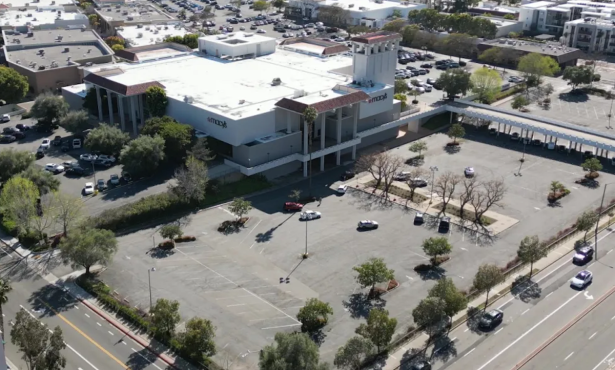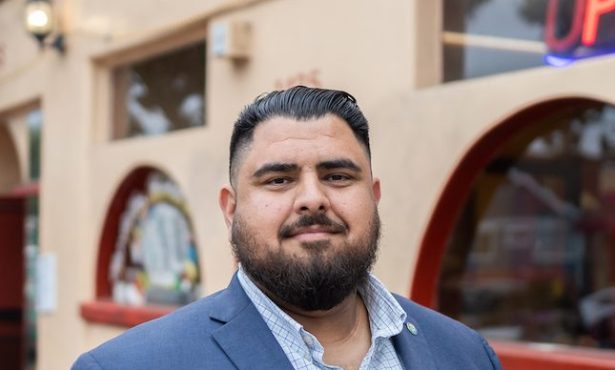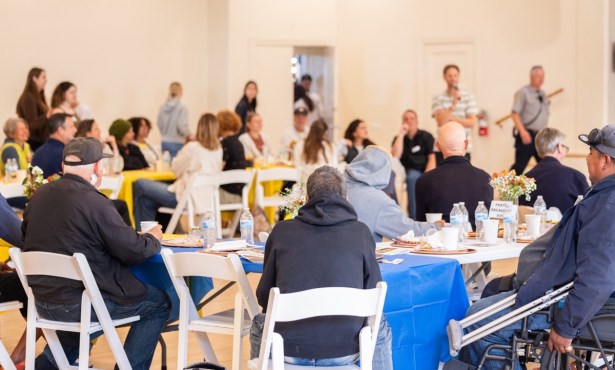Dog Mad: Dog Smash
Supreme Court Agrees to Decide Vandenberg Protesters' Right to Assemble
WINNING IS THE BEST REVENGE: We live in an age of unlikely heroes, and Hobart Parker is as improbable as they come. A retired ironworker from Lompoc, Parker is rude, crude and socially reprehensible in the extreme. But indirectly because of Parker, the U.S. Supreme Court has just agreed to hear a major case involving Vandenberg Air Force Base and the constitutional rights of protestors to assemble outside that base. For the past 15 years, Parker has waged a one-man protest movement against Vandenberg. But even other protesters who regularly share the streets with Parker have not understood exactly what he’s upset about, or why, on occasion, he’s seen fit to wear his tighty-whities on top of his blue jeans. On occasion, Parker has been known to bend over and modestly moon base personnel. That’s when he wasn’t instructing them to go fornicate a fish or other such biological improbabilities. The miracle Parker demonstrates is that wonderful music can be made on any instrument. Two years ago, Parker — represented by a federal public defender — won a major constitutional battle at the 9th Circuit Court of Appeals against the base commanders and has called into serious question their assertion of absolute, unilateral, and arbitrary authority to determine who can protest where on the public roads outside one of the nation’s biggest and most strategically important air force bases. In what seemed like a hair-splitting legal technicality, the panel of judges concluded that the base commanders’ authority to limit the public’s freedom to assemble on public property was itself limited because the base did not hold exclusive title to the roads outside the base. In this case, the court noted that the State of California and the County of Santa Barbara both shared an easement over those roads — and have since 1962 — which allows the public to traverse. Lacking exclusive jurisdiction, the panel ruled, the base lacked the legal authority to detain and arrest Parker for protesting while on public roads outside the base.

Initially, this ruling seemed as peculiar and eccentric as Hobart Parker himself. But it got serious in a hurry when longtime peace activist Dennis Apel — a social-justice agitator out of the Catholic Worker tradition — decided to play with it. With astonishing blue eyes and a playful gap-toothed smile, Apel is the boy next door grown into middle age. Except somewhere along the way, Apel had a very atypical midlife crisis, morphing from overachieving trucking-company executive — in Downey — into sack-cloth revolutionary with both heart and humor. Operating out of Guadalupe, Apel and his wife, Hortensia Hernandez-Apel, deal with issues like tenants’ rights, health care, hunger, and immigrant rights. But Apel makes it a point to bear witness against the base. Back when the Iraq War was just starting, he sprayed the sign at the base entrance with a syringe full of his own blood. This earned him a “ban and bar” notice, meaning he was not allowed anywhere on the base. That also meant — at least according to the base commanders — Apel was not allowed to congregate on the designated protest spot across the street from the base entrance. Over the years, the base has asserted absolute authority to say who could and who could not assemble in the protest zone “for any reason.”
Apel — a chronic recidivist when it comes to civil disobedience — has been arrested no less than 17 times for protesting at Vandenberg. On two occasions, he was arrested for actually crossing the green line demarcating the base boundary and trespassing onto the base itself. The other 15 arrests, however, took place in the area across the street from Vandenberg’s entrance, which had been set aside — at the instigation of the base — specifically to accommodate protesters. In none of these instances has it been alleged that Apel became violent, obstreperous, unruly, threatening, profane, rude, or even unpleasant. He was just there. Of those 15 arrests, Apel was actually tried for three and found guilty. For one, he spent time behind bars. After the Hobart Parker decision came down two years ago, Apel and a non-attorney friend filed legal papers to have the Hobart decision published after the Feds’ deadline for appeal had expired. That was a seriously slick move. Once Hobart was “published,” it carried the legal weight of precedent. As soon as Apel’s case got to the 9th Circuit Court, his convictions were tossed out.
The military brass freaked, and so did the Feds. As a result, the office of Attorney General Eric Holder filed an appeal to the Supreme Court earlier this year to reverse Apel’s reversal. That same disturbing question mark hovered over countless bases throughout the country, the Feds asserted, and in the balance hung nothing less than a nation’s ability to defend itself. If the brass could not order a civilian — for any reason — not to congregate in an area across the road from a military base — and in this case, at least two football fields away from the base’s first security checkpoint — then our national security would be threatened. At least that’s the argument. Along the way, Apel petitioned for legal representation. He wound up getting Erwin Chemerinsky — a certified rock star in the field of constitutional law. In legal papers, Chemerinsky wondered if national security were truly the issue, why would base brass have allowed the construction of a middle school, a bus depot, and an Amtrak station nearly spitting distance from the entrance? Rhetorically, Chemerinksy showed restraint in not taking the last word for himself. Instead, he gave it to former Supreme Court justice Thurgood Marshall. “The First Amendment does not evaporate with the mere intonation of interests such as national defense, military necessity, or domestic security,” Marshall wrote. “Those interests cannot be involved as a talismanic incantation to support any exercise of power.”
Indeed. I couldn’t have said it any better. I wouldn’t even try.



